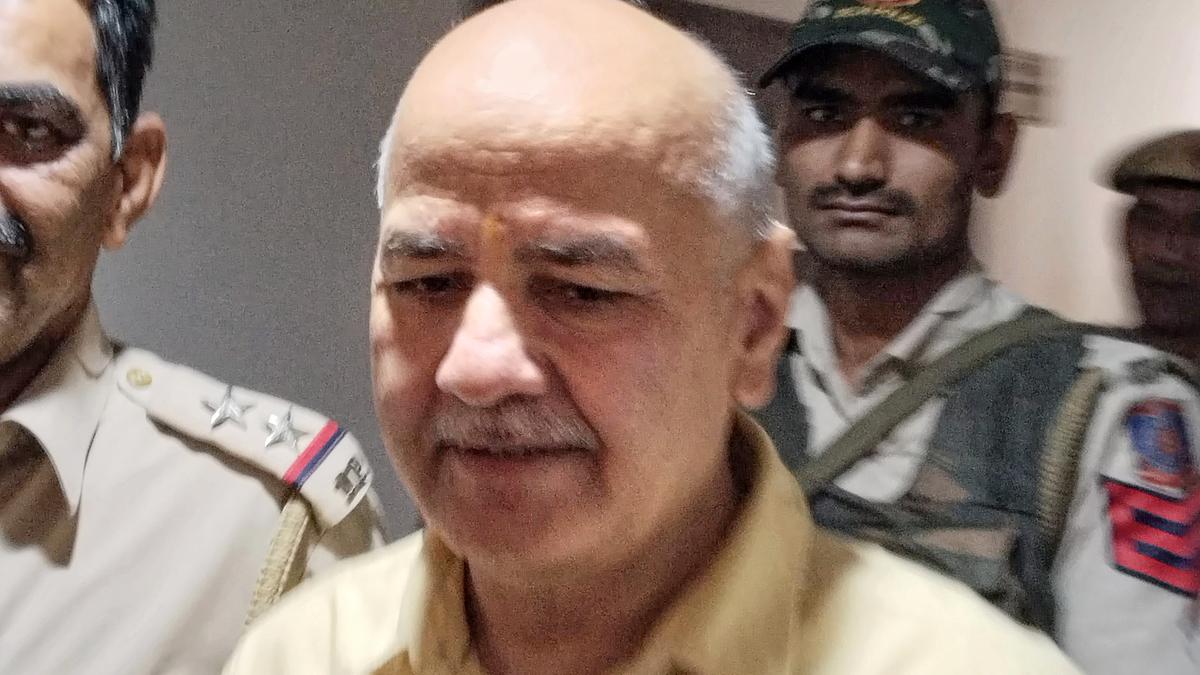
Excise policy case: Delhi court extends Manish Sisodia’s judicial custody till July 3
The Hindu
Delhi court extends till July 3 judicial custody AAP leader Manish Sisodia in a money laundering case related to the alleged excise scam
A Delhi court on May 31 extended till July 3 the judicial custody (JC) of AAP leader Manish Sisodia in a money laundering case related to the alleged excise scam.
Special Judge Kaveri Baweja extended Mr. Sisodia's remand after he was produced before the court through video conference from jail on expiry of the judicial custody granted earlier.
Also read | Delhi Excise Policy case: Delhi High Court denies bail to Manish Sisodia
The judge also asked the Enforcement Directorate (ED) to supply a copy of the charge sheet, filed recently by the central probe agency, to Mr. Sisodia and other co-accused after redacting the name of a protected witness.
The judge granted a month to the counsel of those accused in the case to go through the documents at the ED office.
The counsel appearing for co-accused and AAP Rajya Sabha MP Sanjay Singh told the court that it is likely to take 90 to 100 hours to peruse the documents. The counsel for other accused also mentioned the time they need for going through them.
The court directed the ED to make appropriate arrangements for them at its offices.

“Writing, in general, is a very solitary process,” says Yauvanika Chopra, Associate Director at The New India Foundation (NIF), which, earlier this year, announced the 12th edition of its NIF Book Fellowships for research and scholarship about Indian history after Independence. While authors, in general, are built for it, it can still get very lonely, says Chopra, pointing out that the fellowship’s community support is as valuable as the monetary benefits it offers. “There is a solid community of NIF fellows, trustees, language experts, jury members, all of whom are incredibly competent,” she says. “They really help make authors feel supported from manuscript to publication, so you never feel like you’re struggling through isolation.”

Several principals of government and private schools in Delhi on Tuesday said the Directorate of Education (DoE) circular from a day earlier, directing schools to conduct classes in ‘hybrid’ mode, had caused confusion regarding day-to-day operations as they did not know how many students would return to school from Wednesday and how would teachers instruct in two modes — online and in person — at once. The DoE circular on Monday had also stated that the option to “exercise online mode of education, wherever available, shall vest with the students and their guardians”. Several schoolteachers also expressed confusion regarding the DoE order. A government schoolteacher said he was unsure of how to cope with the resumption of physical classes, given that the order directing government offices to ensure that 50% of the employees work from home is still in place. On Monday, the Commission for Air Quality Management in the National Capital Region and Adjoining Areas (CAQM) had, on the orders of the Supreme Court, directed schools in Delhi-NCR to shift classes to the hybrid mode, following which the DoE had issued the circular. The court had urged the Centre’s pollution watchdog to consider restarting physical classes due to many students missing out on the mid-day meals and lacking the necessary means to attend classes online. The CAQM had, on November 20, asked schools in Delhi-NCR to shift to the online mode of teaching.









